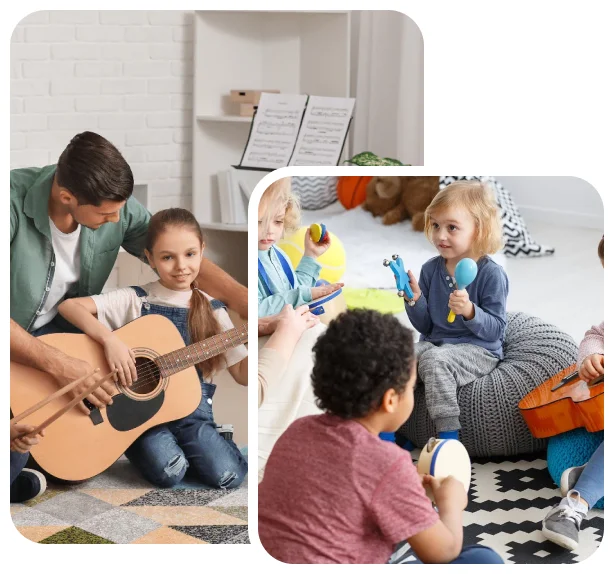Each part of this creative family hub is aligned to the same philosophy— to build confident children through a stimulating environment, to nurture artistic abilities through top-ranked classes, and to grow a community that thrives on real connections in this fast-paced city.


S.D.G. stands for Soli Deo Gloria, meaning "Glory to God Alone." This phrase emerged from the Protestant Reformation and was also the customary signature of the "Father of Music," J. S. Bach, on his musical manuscripts. In some of Bach's musical works, you can find the inscription S.D.G. (Soli Deo Gloria).
At SDG, our teaching team is composed of highly experienced and passionate professional educators who possess extensive backgrounds in music education and teaching. Each member of our team has undergone rigorous screening and comprehensive training to meet our exacting standards. We prioritize our teachers' professional expertise and their enthusiasm for music education, ensuring that children receive the highest quality music education from our team.
We firmly believe that music education is not just about learning to play an instrument, but also a process of nurturing children's creativity, confidence, and coordination skills. S.D.G. Music Academy (SDG) is dedicated to providing high-quality music education, allowing children to learn music in a relaxed and enjoyable environment and to experience the joy that music brings. We employ a systematic teaching approach, using the Orff and Kodály methods as the foundation, to design unique course content for our students, ensuring that they receive the highest quality music education.

During the critical music learning period of ages 3-6, we focus on developing essential skills such as auditory perception and rhythm. Our spiral learning approach reinforces these abilities, laying a solid foundation for future learning.
Music education enhances attention, memory, and language skills while fostering mathematical thinking. Through auditory, tactile, and visual experiences, children grasp various musical elements like tempo, pitch, duration, and dynamics.
Music helps children express their emotions, enhancing emotional understanding and empathy.
Participating in group music activities such as choirs or bands boosts teamwork and social skills.
Learning instruments or engaging in musical movement improves coordination and motor skills.
Music education encourages creative thinking, allowing children to explore different modes of expression.